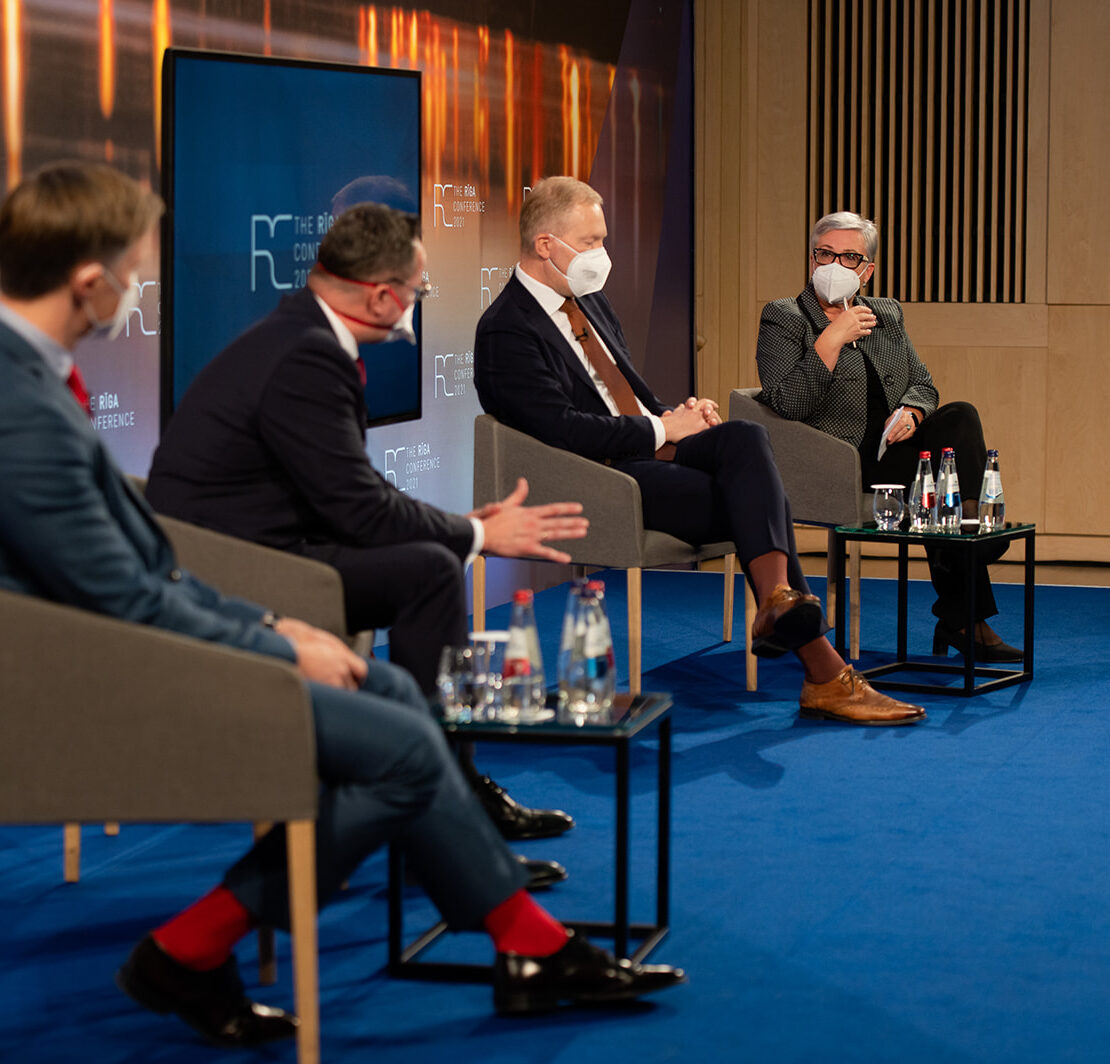Participants:
Rihards Kols, Chairman of the Foreign Affairs Committee of the Saeima, Latvia
Žygimantas Pavilionis, Chairman of the Foreign Affairs Committee of the Seimas, Lithuania
Marko Mihkelson, Chairman of the Foreign Affairs Committee of the Riigikogu, Estonia
Moderator: Prof Žaneta Ozoliņa, Chairwoman of the Board of the Latvian Transatlantic Organisation
The discussion begins with question on what the biggest achievements in Baltic cooperation were and what wasn’t achieved in the last few years. The first discussant highlights the healthy rivalry of the Baltic states into the EU accession as positive force, and in last decade the Baltic states have been identifying their stances in the international community and complexities are developing. Though there are positive dynamics, but we have discord among smaller sectors – in the energy sector in particular. This remains a shortcoming.
A speaker followed by highlighting that everything the Baltics do together is exemplary – they are the best example of acceding and integrating into the west. Looking to shortcomings – they are related to the future – the Baltics need to learn how to work together as the best of the best. They need to find more agreement in big questions in the future context – geopolitical, economic, and other value choices in who we work with and who we do not work with – especially China. Agreeing on future issues is key, especially to then mobilize the necessary resources.
Another speaker highlights that the Baltics actually meet and work together a lot, and there is a lot of cooperation at all levels of government. However, the Baltics need to work together and listen to each other – never again alone, which is the mistake made prior to the Second World War. The Baltics have to make sure they keep their eyes open and build awareness and connectivity. Also, it is important to acknowledge personal difficulties, but be able to put them away to reach goals together.
For the smaller countries like the Baltic states – dialogue within autocratic countries is the biggest issue right now – a new format and anti-coercion mechanisms need to be created. This will need to exist to ensure that there is some form of reactivity and preparedness against the influence of larger countries that do not share values. The question of Taiwan is also a big issue – need to open representations in Taiwan, as that is the value area that the Baltics belong to.
The countries alone cannot balance the growing influence of china. They need to work together – there are worries of fault lines especially after Afghanistan and Crimea. The speaker noted the need to think about the common strategy between and among the Baltic states that may be more specifically fitting to the three of them while aligning to NATO and other international organizations they are all parts of.
A discussant brought up the issue of Ukraine – it is one of the countries striving for EU membership. The discussants highlight that at the committee level there is constant engagement. The Baltics have been very supportive of their integration and are closely following what has been done in terms of the variety of reform staking place. At the same time, the Baltics must remain vocal about the illegal occupation of Ukrainian territory. Some declaration needs to be made. The most important question remains the NATO action plan for Ukraine to become a NATO member state – much needs to be discussed here. The discussants agreed that Ukraine and the Eastern partnership is a role that the Baltic states could tackle together.

